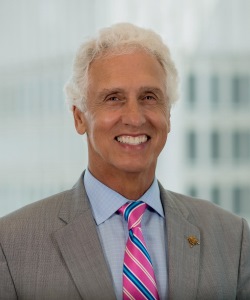Our Offices: Philadelphia, PA Moorestown, NJ

The CARES Acts’ Payroll Protection Program (PPP) allows small businesses to apply for loans up to $10 million to cover business expenses such as payroll, rent or mortgage payment, and utility payments. Instances of suspected abuse of the program have made the news. Suspected culprits include: Harvard University, Shake Shack, and Ruth’s Chris Steakhouse.
When large amounts of money are issued quickly with little to no regulation, the Federal Government loses control. This situation has happened before. Following the financial crisis of 2008, the Congress created the Troubled Asset Relief Program (TARP) to keep the nation’s banks operating. TARP employed a “pay and chase” strategy to recover funds obtained under false certifications and out-right fraud. In 2012, over $3.1 billion of fraudulently obtained TARP funds was recovered from mortgage companies.
The Federal Government intends to employ the same approach with regard to the CARE Act/PPP. On April 10, 2020, the Government Accountability Office announced efforts to root out fraud associated with the CARES Act/PPP, urging private citizens to report any suspicions of fraud and abuse. This can be done anonymously.
Under the False Claims Act (“FCA”), a person with evidence of misconduct can bring a qui tam action against a suspected wrong-doer. A qui tam action allows a whistleblower (a “relator”) to bring forth evidence of false claims to the Government. After an investigation, the Government can choose to (1) intervene or (2) allow the relator to continue his private action without government assistance. Either way, if the suspect is found liable for fraud, the relator receives a percentage of the damages payable to the Government and receives whistleblower protection—meaning the relator’s employer cannot retaliate against him for reporting fraud to the Federal Government.
One area ripe for potential abuse of the PPP: to receive forgiveness, a company must certify in “good faith” that it is eligible for a loan based on its number of employees, that the payment is necessary to “support ongoing operations” due to the “uncertainty of the current economic” climate, and that the payment will be used for payroll, mortgage or lease payments, or utility payments. The PPP was designed to not only protect small businesses, but the employees of those businesses. It is important that those funds are utilized as certified.
Abuse of these loan programs hinder the ability of small companies to receive urgent funding to stimulate the economy at the cost of taxpayers. If you believe that your employer, or a business of which you have intimate knowledge, has made false certifications to the Federal Government under the PPP, contact us today to learn about your rights and options. Our Philadelphia office can be reached at (215) 567-1530, and our New Jersey office can be reached at (856) 273-6679. You can also reach us by email at [email protected].












